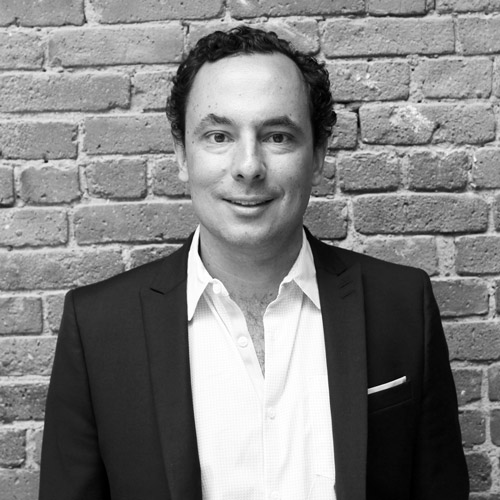When it comes to deliver-ing solutions that ensure safety and security for people around the world, Larry Costello sees it as a universal need that isn’t going away. The executive vice president and chief human resources officer joined Tyco—the world’s largest pure-play fire and security company—in 2012 as the business was initiating a significant transformation. Costello’s HR leadership was not only applied during this transition, but more broadly in pushing Tyco forward with its delivery of products and services that are essential to people around the world.
“I don’t know of a time in my life or career where I’ve worked for a company with such current importance,” Costello says. “The relevance of fire and security systems around the world continues to grow, and I foresee it strengthening even further.”
Costello came to Tyco as it spun off from ADT North America and Tyco Flow Control to become a new operating company. This meant that he and his team had the opportunity to articulate a new HR strategy guided by a clear vision that supported Tyco employees around the world as they responded to changing security needs of their clients. The first years of transition involved establishing “Centers of Excellence,” which Costello tasked with building enterprise-wide talent development and rewards systems driven by deep analytical insights and contemporary industry practices.
Keeping the company’s strategic direction in mind and aligned with the HR business partners, the “Centers of Excellence” led to significant HR advancements. With this strong HR structure delivering a robust talent pipeline and performance-driven rewards, Tyco successfully established itself as an operating company after its transition in 2012. With a current backdrop of transforming into a growth and innovation company, it is now focused as well on merging with Johnson Controls to become a global leader in building products and technology, integrated solutions, and energy storage.
Setting himself apart from a traditional HR perspective, Costello believes that the interests of the business must always be at the forefront of establishing successful human systems. “Traditional HR is all about the function,” Costello explains. “Everybody works on building functional skills and hopes those skills are appreciated in the business. The only thing an HR function needs to do is to have the most relevant programs and processes that drive a difference in the business. It’s not ‘HR for HR’ or ‘HR because everyone else is doing it.’”
With this philosophy in mind, Costello has established universally consistent rewards and talent systems that keep employees focused on understanding the immediate needs of their clients and developing the best solutions to meet those needs. Establishing an effective rewards system for a diverse global enterprise as large as Tyco presents unique challenges, but Costello is guided by the belief that there is more similarity around the world than difference when it comes to an employee’s core values.
Just as people have a universal need for security and fire safety that the company seeks to address through its products and services, people in the workplace have universal needs that human resources seeks to address through its programs and rewards. “People want to be paid competitively. They want to know, ‘what is my role?’ They want to be differentiated for their performance,” he says. “People want to be enabled and clearly recognized for the work they’re doing.”
Implementing universal consistency, transparency, and clarity in Tyco’s rewards system allows employees to focus their energies on moving the enterprise forward. “We want to take all of the noise out of the system. We don’t want people worried about, ‘are my benefit plans different here, there, or any place?’ We find a way to create satisfaction there so employees can focus on their work and the businesses can focus on growth and innovation,” Costello says.
Similarly, Tyco’s unique talent system, which embeds employee training into the daily workplace through targeted project assignments, is designed to give employees the necessary support they need to best serve in a functional role that moves the business toward its objectives. “We want people to know we are prepared to invest in them,” Costello says. Tyco’s talent system includes training in the more traditional sense with programs such as Tyco University, a largely self-directed virtual platform that provides in-house instruction to employees.
However, Costello’s approach to talent development also involves looking at the process with a panoramic lens. “We are now at a point where we’re looking at talent globally,” he says. “What we know is that the best way to develop talent is position assignment, project assignment—because you learn on the job better than you learn in any other way—and then we have a fairly robust succession process.”
Costello’s ability to bridge the gap between business objectives and human needs of employees has, not surprisingly, led to offers throughout his career to work in commercial, operational, and managerial positions. Yet Costello views the impact he can make as an effective leader in the human resources arena as adding even more value to a business than he could in other roles. “From a leadership standpoint, all of us have learned over the years that talent makes a difference,” he says. “It’s really about having the talent in the right place at the right time. When you can get that combination to work, magic happens.”
Costello and his team have successfully implemented an HR philosophy that ensures Tyco’s employees are given the clarity, support, and satisfaction they need to come to work each day and advance the objectives of the business. Now the company is empowered to reflect upon the importance and urgency of the fire and security needs of its clients around the globe. “As I go out around the world and talk to our employees, they’re very clear; we’re saving lives every day,” Costello says.
